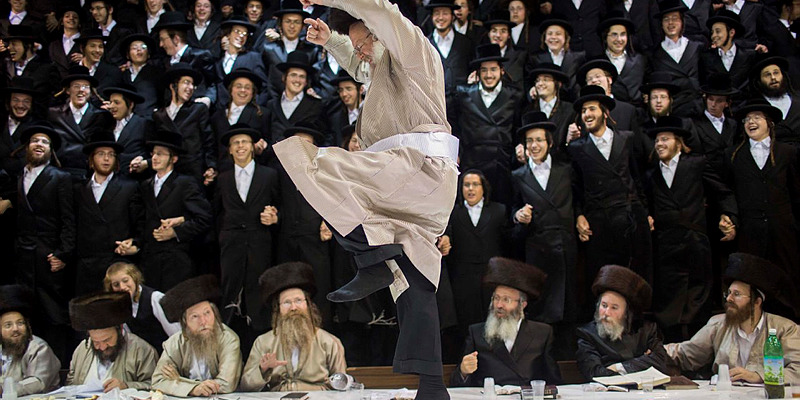Let us hope that next year, the coronavirus will have been defeated and people will again join to gether in communal song and dance. But don’t let your spirits be dampened this year. Celebrate the best you can. It’s a mitzvah!
By: Rabbi Ari Enkin, Rabbinic Director, United with Israel
Although an independent holiday, Simchat Torah is often referred to as the last day of Sukkot. In reality, it is part of the holiday of Shemini Atzeret.
Simchat Torah (Hebrew for “Joy of Torah”) is unquestionably one of the most festive and joyous holidays of the year. It is the day that we celebrate the completion of the annual Torah reading cycle. The holiday is also especially focused on the children in order to develop within them a love for the Torah.
The question is asked: Why is Simchat Torah, or any other celebration related to the Torah for that matter, not observed on Shavuot (Pentecost), the day that the Torah was actually given? In fact, Shavuot, the day when the Torah was given, is one of the holidays that essentially has no unique mitzvot (commandments) that are observed at all. For example, Passover has the mitzvah of eating matzah (unleavened bread), and Sukkot has the mitzva of shaking the lulav (palm branch), but Shavuot has no such precepts. I guess you can say that Shavuot is somewhat boring in terms of ritual.
So…Why is the day that the Torah was given observed in a less exciting manner, while on the day that the annual cycle of Torah is completed, on Simchat Torah, there are elaborate celebrations?
Perhaps the answer can be found in the following parable:
A young man once went to a matchmaker in search of a wife. The matchmaker listen to what the young man was looking for in a wife and suggested a fine young woman. The matchmaker said that this woman had all the qualities that he was looking for.
The young man discussed the proposition with his parents, friends and rabbis, and they all encouraged him to pursue it further and take the girl out on a date. They went out, were engaged soon afterwards, and readied themselves for their wedding day.
The matchmaker, and all those whom the young man had consulted for advice on whether or not to pursue the match, were present at the wedding, and he thanked them all for their advice and encouragement.
After the wedding, the young man was especially impressed with his new wife, and she indeed had all the qualities that he was looking for in a wife. She was kind and pleasant, loving and caring, everything a man could ask for! The young man began a tradition: Every year on his wedding anniversary he would phone the matchmaker, and all those who advised him to pursue his wife, and thank them profusely. He would go on raving about his wife and how happy he was with her.
When they had children, he saw that his wife was also an amazing mother. Not only would he rave about his wife’s personal qualities when he made his traditional phone call on their wedding anniversary each year, but he now added how great a mother she was too!
Herein lies the lesson of the difference between Shavuot and Simchat Torah. On Shavuot, we received the Torah, but we did not yet study it, practice it or live with it. It was new, it was fresh. We weren’t sure what kind of ‘deal’ we had gotten ourselves into. It is only after we had some time to study it and experience it that we appreciate how great this gift really is! Simchat Torah is the day we show appreciation to the “matchmaker” who gave us this precious gift. We celebrate how great the Torah really is after having been able to study it and fulfill its mitzvot.
We need the Torah for everything in life! It shows us the way! It teaches us what’s right! It brings meaning and fulfillment in our lives! Be sure to attend Simchat Torah services and dance with the Torah…it’s a perfect gift like no other!

